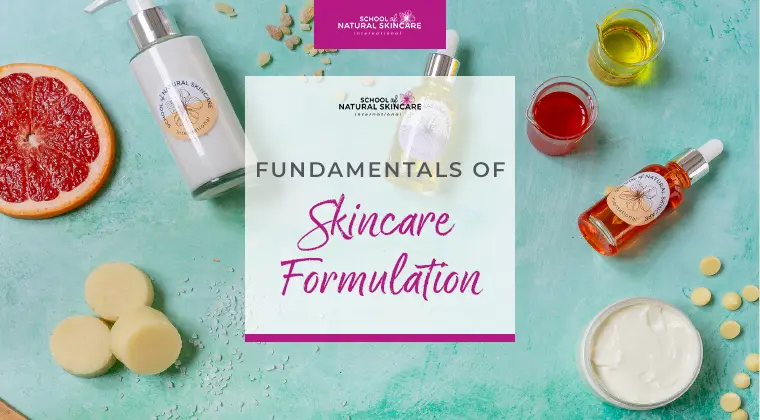We converted to making our own skincare products a long time ago! However if you are quite new to making your own products, or haven’t yet and want to know why you should, here are 9 fantastic reasons to inspire you to start!
1) Trust
It’s hard to trust products with a long list of ingredients on the back that you can’t even pronounce!
You can’t always trust products marketed as ‘natural’ or ‘organic’. Unfortunately greenwashing occurs in the beauty industry, which the Soil Association describes as follows:
“A product may claim to be natural with only a few natural ingredients in it, or even just a drop of essential oil. Worse still, they may contain ingredients which wouldn’t be permitted in a genuinely certified natural or organic product. Packaging can trick us by using words like “organic”, “eco”, “botanic”, “pure” and “natural”, whilst containing near to no ingredients to back up that claim.”
(Source: 5 Tips To Avoid Greenwashing)
How much better to make your own and know exactly what is going in them!
2) Cost
The cost of good quality natural and organic products is often high and for good reason; they are quality products, using the best ingredients, which have been carefully formulated and branded. The brand owner puts in a huge amount of time and effort that they deserve to be rewarded for. Plus of course they’ll have many business overheads and expenses to pay.
If you choose to make your own products you don’t have to pay these business expenses. All you need to pay for are the ingredients you use and something to package the product in. Making your own products is therefore much more cost effective.
A high-quality face cream that retails for $30 or $40 you can easily make for $5-$10. (Creams are typically 60-70% water so this is one of the reasons they can be inexpensive to make!)
3) Chemical and synthetic free
Many people don’t want to use products that contain synthetic ingredients or undesirable and potentially harmful chemicals. To echo point number 1 above, just because a product is labelled natural or organic it doesn’t necessarily mean it is free from these ingredients.
“I was shocked to find ingredients which could contain human carcinogens in products with labels which could misleadingly suggest that they might be organic,” said Professor Vyvyan Howard of the Centre for Molecular Bioscience at Ulster University as part of the Soil Association’s Come Clean About Beauty Campaign.
By making your own you can make 100% natural products, free from harmful chemical and synthetic ingredients.
4) Good fun and creative
Making products from scratch is extremely satisfying. A bit like cooking an amazing meal, baking the most fabulous cake, painting a beautiful picture or writing a wonderful story.
5) Tailor your product to suit you
There are many amazing products available to buy for dry skin, oily skin, sensitive skin, normal skin, mature skin and combination skin, which is great. There is, however, no such things as ‘one size fits all’ when it comes to individual health and wellbeing. Making your own solution can offer much greater and wider reaching benefits. Personalize your products to suit you – your skin type, your ethics and values, the aromas you like and the benefits you want to see!
6) Solve your skin issues, look and feel great!
Our students report amazing results from just a few weeks of switching to natural products. Baby eczema has cleared up, acne reduced and perioral dermatitis cleared.
By using good quality essential oils in your products you’ll also reap the benefits of their ability to enter the bloodstream and help the body heal from the inside out. Plus you’ll benefit from their mood enhancing properties, too!
Read more about the benefits of essential oils here.
7) Become empowered
Knowledge is power, as they say! It’s really empowering knowing how to take care of yourself and your family and not having to rely on large corporations to meet your needs. Many products are very easy to make – it’s not rocket science – and once you know essential principles about how products are formulated, the ingredients you can use and if and when you need to add preservatives, you’re all set. Our online courses teach you everything you need to know.
8) Make your favourite products
You can pick your favourite brands and products, do some research into the ingredients and then go ahead and recreate something similar yourself. The wonderful thing about this is, you can make your own version for a fraction of the cost of buying it!
9) Start your own business!
Once you know how to make your own skincare, bath and body care products, there’s nothing stopping you! There are no formal qualifications you need to make products to sell. Of course, you need to acquire the necessary knowledge, have your products safety tested and comply with the cosmetic regulations. Once that’s done, you’re away! Here are some of the awesome brands started by our students.
Free Online Organic Skincare Formulation Course
Fundamentals of Skincare Formulation

Learn the essentials of skincare formulation with our FREE course!
If you’re confused by all the misleading information out there, we’re here to guide you. Learn how to create natural and organic products confidently, using industry best practices, under the guidance of professional cosmetic scientists.
Exclusive for our newsletter subscribers. Sign up now.
We look after your data in accordance with our privacy policy.
What you’ll learn:
- Formulation Foundations: The basics of cosmetic chemistry and skincare formulation.
- Bodycare: Make a shea-butter-rich body moisturizer with our pro formula.
- Facial Skincare: Rejuvenate your skin with our two facial oil formulas.
- Creams & Lotions: Create shelf-stable moisturizers using our tried-and-tested formula.
- Natural Ingredients: Understand the key natural and organic ingredients used in formulations.
Exclusive for our newsletter subscribers. Sign up now and start formulating your own natural products today!




